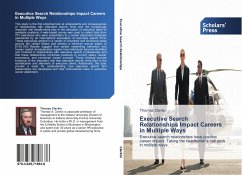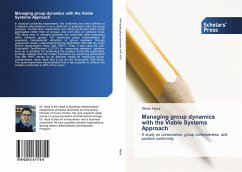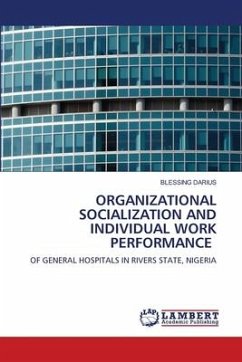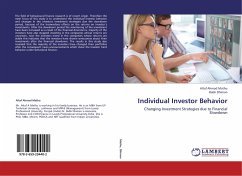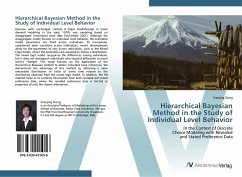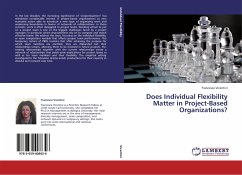
Individual and Relational Dynamics of Ambition in Careers
Versandkostenfrei!
Versandfertig in 6-10 Tagen
45,99 €
inkl. MwSt.

PAYBACK Punkte
23 °P sammeln!
Ambition has long been heralded as essential for career success, yet few researchers have explored this concept empirically. Management scholars have primarily defined ambition as the desire to get ahead, an extrinsic goal. Based on the changing nature of careers, the theory developed here explores the concept of ambition from a social cognitive perspective. The study investigates the dynamics of individual differences and developmental (mentoring) relationships with ambition and career success. To test the conceptual model, ambition is operationalized as both intrinsic and extrinsic aspiratio...
Ambition has long been heralded as essential for career success, yet few researchers have explored this concept empirically. Management scholars have primarily defined ambition as the desire to get ahead, an extrinsic goal. Based on the changing nature of careers, the theory developed here explores the concept of ambition from a social cognitive perspective. The study investigates the dynamics of individual differences and developmental (mentoring) relationships with ambition and career success. To test the conceptual model, ambition is operationalized as both intrinsic and extrinsic aspirations. Data collection for this project includes a survey of 223 young professionals and 20 follow-up interviews. This study was the first to examine the association of developmental network composition and support with ambition in a population of working adults. The findings disentangle the relative influence of extrinsic and intrinsic ambition on objective and subjective career success. By incorporating self-determination theory into its conceptual framework the study also makes a unique theoretical and empirical contribution to the research on careers.



